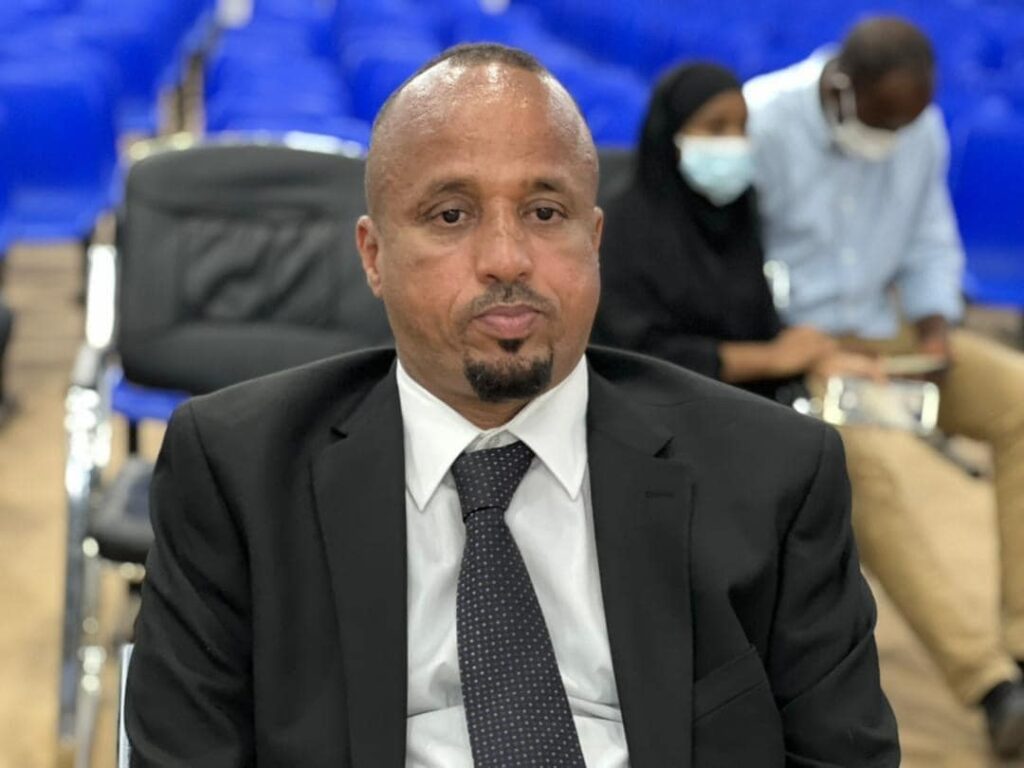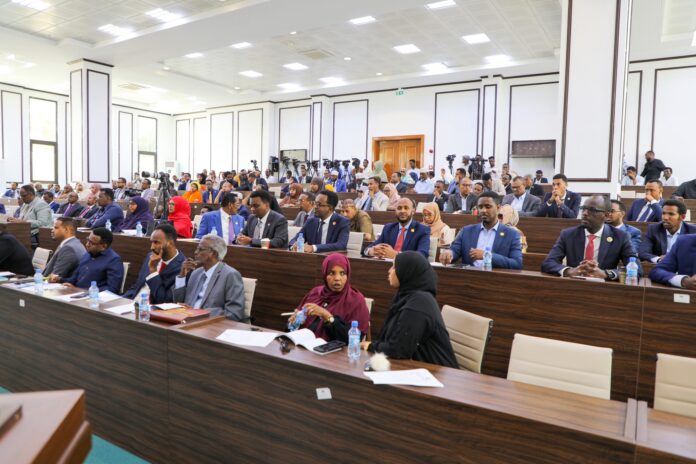MOGADISHU (KAAB TV) – Lawmakers representing the Banadiri community in Somalia have raised their voices against the continued marginalization faced by their community, attributing it to foreign aid exacerbating their plight.
The Banadiri, who have long endured dispossession, persecution, and institutionalized political marginalization, have expressed their frustration at the lack of support from the international community.
During a heated debate in Somalia’s Lower House focused on the escalating ethnic conflict in the Lower Shabelle region, lawmakers directed blame towards the United Nations and the European Union for allegedly funding certain clans that perpetuate oppression and mistreatment of marginalized communities.
A fighting in Barawe, a historic coastal town in Lower Shabelle, resulted more than 10 deaths, including civilians, on Monday. Two rival armed groups, vying for control of the city and its resources, including revenue collection checkpoints, have been engaging street battle on Monday and Tuesday.
MP Omar Sharif Jeeg, a vocal representative from the Banadiri community, strongly condemned the fighting and expressed regret as part of the international community’s role in enabling these ethnic clashes and abuses against minorities.
He highlighted the forceful displacement and seizure of land from Banadiri community members in Barawe, emphasizing the 31 years of funding support that has sustained such violations.
“The international community, i.e., UN and EU, should be ashamed of their actions,” MP Jeeg stated, calling for the Banadiri community to resist fleeing and instead acquire weapons to protect their ancestral land and resources.

‘Unarmed, lacking full economic and political rights’ in their ancestral land
Despite being the native inhabitants of Mogadishu, Marka, and Barawe, Banadiri clan members are collectively classified as members of an unarmed clan, lacking full economic and political rights even in their ancestral towns.
MP Omar Jeeg added, “Our land has been taken, our rights have been taken, and now our existence is in danger.” He expressed concern over the prolonged abuse endured by the Banadiri community while major clan members who fled Mogadishu since 1991 were able to return to their areas of origin.
MP Abdirashid Jili from Barawe strongly criticized the situation in the Lower Shabelle region, highlighting the racial targeting and killing of civilians based on their ethnicity and blamed the African Union Transition Mission in Somalia (ATMIS) of colluding with one side of the warring groups in Barawe.
“Our stance is clear: No clan shall exert dominance over another. Barawe holds the position of capital within Southwest State, and we firmly reject any attempts by individuals from other regions, disguising themselves as government forces under the banner of their clans, to oppress and mistreat our people,” he emphasized.
He pledged to hold the perpetrators accountable and called on foreign donors to reassess their funding of projects that contribute to hostility against minority communities in Lower Shabelle.
The European Union remains a major donor to Somalia, with a significant allocation of Euro 72 million for humanitarian projects in 2023. The United Nations, on its side, asserts its commitment to supporting Somalia’s key areas of focus, including humanitarian aid, development initiatives, political stability, and security priorities.
However, Somali politicians argue that these funds disproportionately benefit powerful clans favored by the corrupt government officials, lacking sufficient accountability and further perpetuating marginalization and inequality.
“It is not helping. It only deepens the marginalization our community is facing. We urge them to reconsider their approach of funding,” MP Jeeg concluded.
Additionally, recent armed clashes involving the Darwish force, a police unit trained and equipped through joint funding from the EU, UK, and UN, have sparked anger among residents of Barawe and Bardale. These clashes have resulted in numerous casualties, including civilians, and triggered the displacement of local families.
Nur Sidow, the Minister of Petroleum of Southwest State, expressed similar outrage over the death and injury of civilians in the Lower Shabelle region. He blamed mortar shelling by the African Union Transition Mission (ATMIS), funded by the EU and UN, for the casualties in Bariire town.
The incident in Barire followed another tragic incident, as reported by UNICEF, where 22 children lost their lives due to the detonation of an unexploded remnant of war in Muraale village in Lower Shabelle last week, further intensified concerns about civilian safety.
Minister Sidow condemned the indiscriminate attacks by ATMIS on the civilian population in the Lower Shabelle region, urging accountability for the pain inflicted upon innocent civilians.
“We can not remain silent on the increasing attacks by ATMIS on the civilian population,” he told the local media on Wednesday.
The grievances expressed by Banadiri lawmakers and local officials highlight the urgent need to address marginalization, promote equality, and ensure responsible allocation of international aid to mitigate the suffering of vulnerable communities in Somalia.


